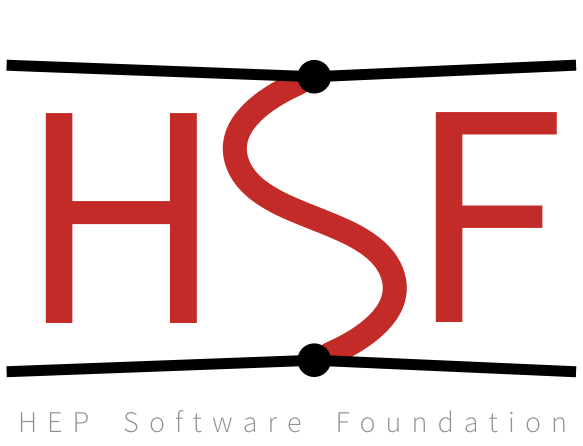HSF/IRIS-HEP Software Basics Training (Virtual)


We are very excited to announce a workshop on software basics in HEP organised through the HEP Software Foundation and IRIS-HEP together with Software carpentry.
The times for the workshop are in US Central time zone.
Over three days we will cover the fundamentals of:
Unix (e.g. shell, bash and scripting);
Git and Github – how to version control your code
Python – fundamentals of using the Python language
Jupyter Notebooks
Python for analysis – how to analyze data in Python either with PyROOT or with the tools from Scikit-HEP
This training is aimed at those who are new to HEP and want a fast-track to competency with software fundamentals, as well the non-expert self-taught who wish to ensure they do not have gaps in their knowledge.
The first two days are covered by The Carpentries. The third day will be taught by tutors expert in HEP software. Interactive hands-on sessions lead by the tutor will be supported by a number of helpers to ensure all participants are able to follow and understand the material.
Given the limited number of participants, all participants are expected to attend the whole workshop.
This is a virtual event and no payment or travel is required for attending. Participants are required to have their own laptop for the workshop.
Please contact the organizers (email us) in case of any questions.
Notes for Participants
Please log in to indico to see all links in the menu bar on the left.
To participate in discussions for the workshop we use a slack channel. You should receive a slack invite via email before the workshop. Make sure to join. All software training related communication should be made via slack.
Make sure you complete the setup instruction below BEFORE the event. Should there be any questions, please ask in the Slack channel.
To participate in the workshop, you will need access to the software described below "prerequisites". In addition, you will need an up-to-date web browser.
Please note that the workshop will be recorded and that the videos will be publicly available.
Prerequisites
For a video walk-through of the installation process, please visit the indico page of our previous event.
The Bash Shell
Bash is a commonly-used shell that gives you the power to do simple tasks more quickly.
Git
Git is a version control system that lets you track who made changes to what when and has options for easily updating a shared or public version of your code on github.com. You will need a supported web browser.
You will need an account at github.com for parts of the Git lesson. Basic GitHub accounts are free. We encourage you to create a GitHub account if you don't have one already. Please consider what personal information you'd like to reveal. For example, you may want to review these instructions for keeping your email address private provided at GitHub.
Text Editor
When you're writing code, it's nice to have a text editor that is optimized for writing code, with features like automatic color-coding of key words. The default text editor on macOS and Linux is usually set to Vim, which is not famous for being intuitive. If you accidentally find yourself stuck in it, hit the Esc key, followed by : + q + ! (colon, lower-case 'q', exclamation mark), then hitting Return to return to the shell.
Python
Python is a popular language for research computing, and great for general-purpose programming as well. Installing all of its research packages individually can be a bit difficult, so we recommend Anaconda, an all-in-one installer.
Regardless of how you choose to install it, please make sure you install Python version 3.x (e.g., 3.7 is fine).
We will teach Python using the Jupyter notebook, a programming environment that runs in a web browser. For this to work you will need a reasonably up-to-date browser. The current versions of the Chrome, Safari and Firefox browsers are all supported (some older browsers, including Internet Explorer version 9 and below, are not).
ROOT
ROOT is an open-source data analysis framework widely used by high-energy physicists. In all the HEP experiments it has become a fundamental tool, and you will have to learn the basics. You can read more about ROOT on the official webpage.
If you have installed Python via Anaconda, ROOT is available as a conda package. We suggest using a conda environment since it will bring in everything that you need, including Jupyter. On the Installing ROOT webpage, you will find the instructions to set up the environment.
We maintain a list of common issues that occur during installation as a reference for instructors that may be useful on the Configuration Problems and Solutions wiki page.
Instructors
- Devasena Inupakutika (The Carpentries & Samsung (Datacenter Technology))
- Zongru (Doris) Shao (The Carpentries & CASUS/HZDR)
- Enric Tejedor Saavedra (CERN)
- Jonas Rembser (CERN)
- Axel Naumann (CERN)
- Eliott Kauffmann (Duke University)
- Guillermo Fidalgo (Physics Depatment, UPRM)
- Aman Goel (Cluster Innovation Center, University of Delhi)
- Alexander Moreno (Universidad Antonio Nariño)
- Marco Mambelli (Fermilab)
- Sakib Rahman (University of Manitoba)
Local organising committee:
- Sudhir Malik (UPRM)
- Michel Villanueva (DESY)
- Wouter Deconinck (University of Manitoba)
- Kilian Lieret (Princeton)

